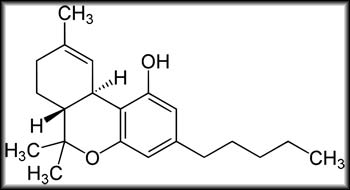“Cannabis is the single most versatile herbal remedy, and the most useful plant on Earth. No other single plant contains as wide a range of medically active herbal constituents.” – Dr. Ethan Russo, Neurologist, Botanist and Cannabis Expert – Cannabinoid Research Institute
Cannabis is an herb like sage, mint, or oregano. Like these herbs and thousands of other plants, cannabis is packed full of therapeutic pharmaceutical compounds including 70+ cannabinoids, 200+ terpenoids and 20+ flavanoids. What makes cannabis unique among other herbs is its large volume of pharmaceutically active compounds and the large number of cannabinoids. While a cannabinoid has been found in echinacea, cannabis is the only other plant known to have cannabinoids.
Endocannabinoid System
These phytocannabinoids (phyto=plant) mimic chemicals naturally made in our own body called endocannabinoids (endo=human). Through cannabis science, researchers have discovered that endocannabinoids regulate or participate in the most important physiological functions of our bodies including hunger, pain modulation, cerebral blood flow, and temperature regulation to name a few.
It cannot be overstated how important the discovery of the endocannabinoid system is to the understanding of the human body and how it works.
Whole Plant Medicine
When kept in their whole form and consumed as vapor, an edible, tincture or extract, the chemical compounds in cannabis work together to support the body in healing itself. Since the beginning of time doctors have used plants as medicine. In fact, the great healing traditions of the world (Chinese medicine, Ayurveda and Western medicine) are based on the synergistic use of plants for healing and relief.
Doctors and plant experts John McPartland and Ethan Russo write, “Herbalist contend that poly pharmaceutical herbs (herbs with multiple active ingredients) provide two advantages over single ingredient synthetic drugs: (1) therapeutic effects of the primary active ingredients in herbs may be synergized by other compounds, and (2) side effects of the primary active ingredients may be mitigated by other compounds.”
This is certainly the case with cannabis. McPartland and Russo have been pioneers in the field of cannabis science, helping us understand the synergistic effect that the different cannabinoids have on each other, and how the terpenoids and flavanoids can make different cannabinoids more powerful and/or reduce the psychotropic affect of THC.
Cannabis Science Research
While the U.S. Government contends there is no known medical use for cannabis, vast mounts of research is being conducted that says otherwise – including the two U.S. patents held by the U.S. Department of Health & Human Services. Unfortunately, much of that primary research is being done outside of the United States because of the difficulty researchers have in getting access to cannabis for their research. The hoops they must jump through to get access to research grade marijuana are unbelievable. The second challenge is that many researchers are not happy with the quality of cannabis they are provided for their research. If cannabis was lowered from a Schedule 1 drug to any other classification, we would see American research increase in this area. It seems logical to believe that cannabis science research would surge resulting in new medical developments to serve many currently undertreated diseases and ailments.
Cannabis Titration
Marinol, one of the legal forms of THC – the psychoactive ingredient in cannabis – is available in the U.S. by a doctor’s prescription. It is a Schedule III drug in the same category as Vicodin, and codeine. Oddly enough, the Marinol pills are difficult to titrate, last much longer than smoked cannabis and have a stronger psychotropic effect that many patients find undesirable. Does that make sense to you?
Smoked or vaporized cannabis enters the blood stream very quickly. This makes it fairly easy for the patient to know when they have had enough or when they need more. It is not about getting high – it is about getting relief!

Follow Us!